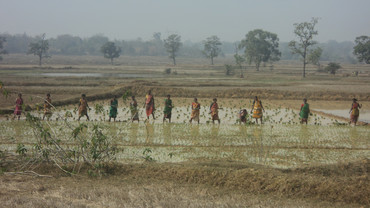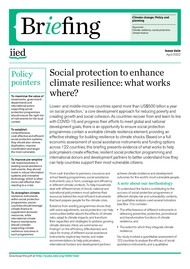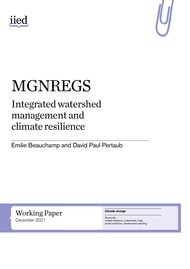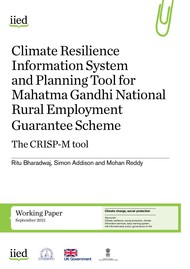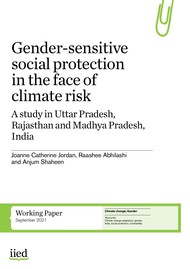Social protection and informal job market reform for tackling climate migration nexus

By 2050, water stress, sea-level rise and crop failure from climate change may displace 31–72 million people across sub-Saharan Africa, South Asia and Latin America. Distress migration generates grave socioeconomic consequences — both for migrants and the families they leave behind.
Through regression analysis and case studies, this paper explores how climate impacts, lack of social protection and marginalisation push households in two diverse communities in India towards distress migration. It then recommends how to strengthen social protection programmes and informal job market regulations to support communities before, during and after migration.
Cite this publication
Available at https://www.iied.org/21121iied
